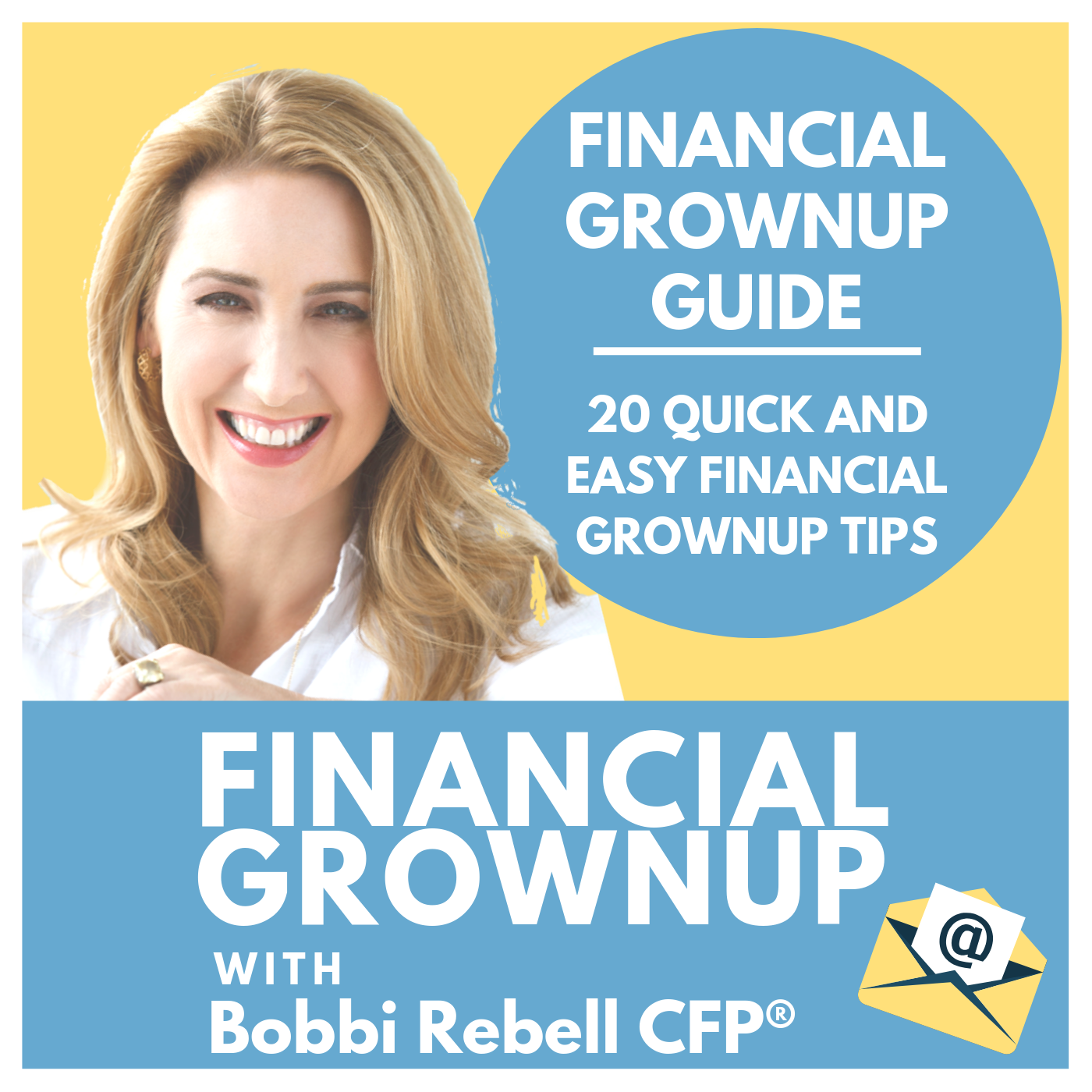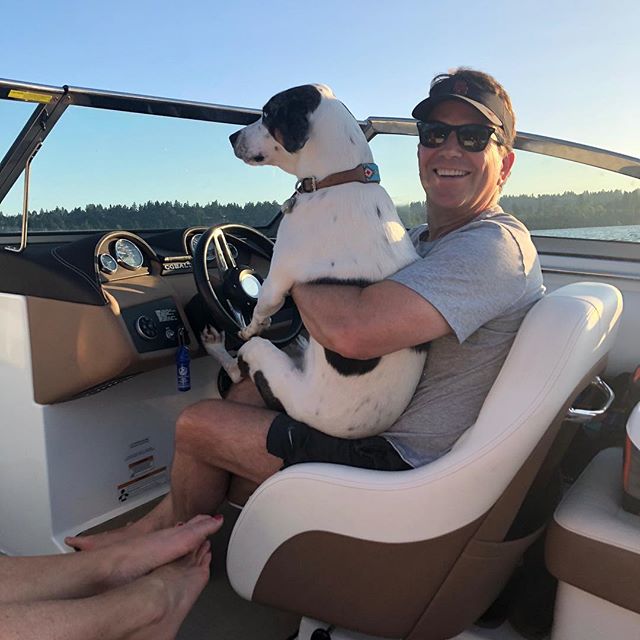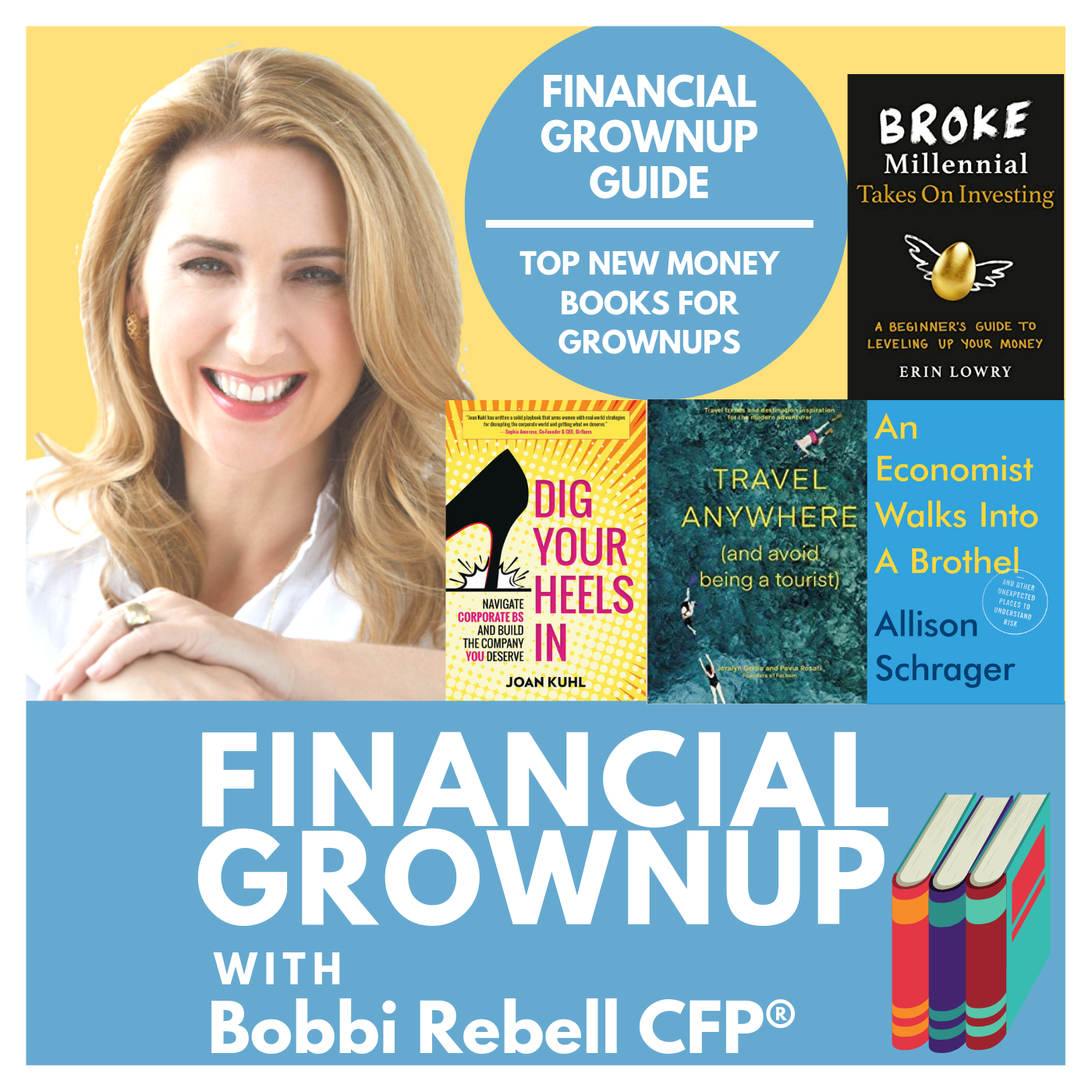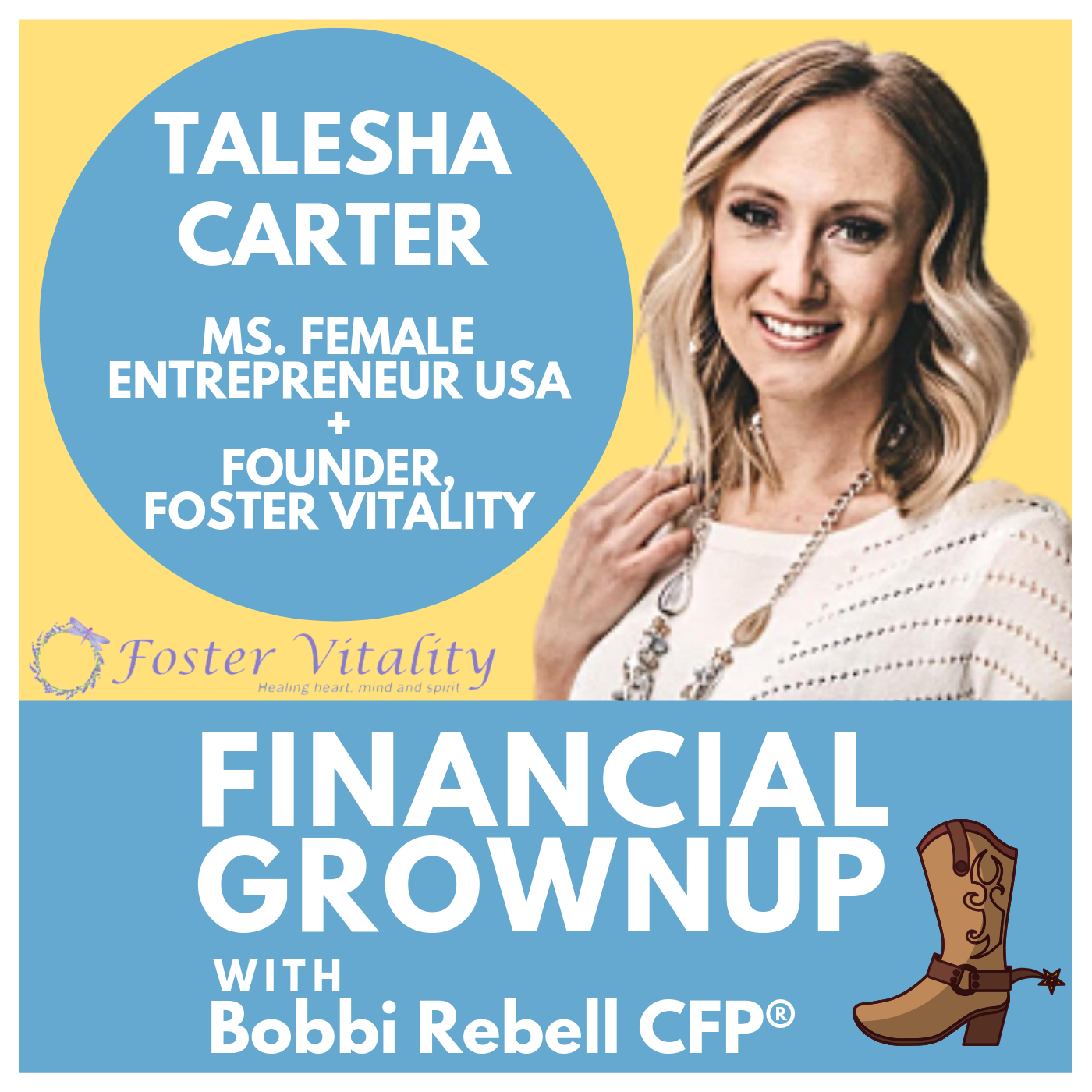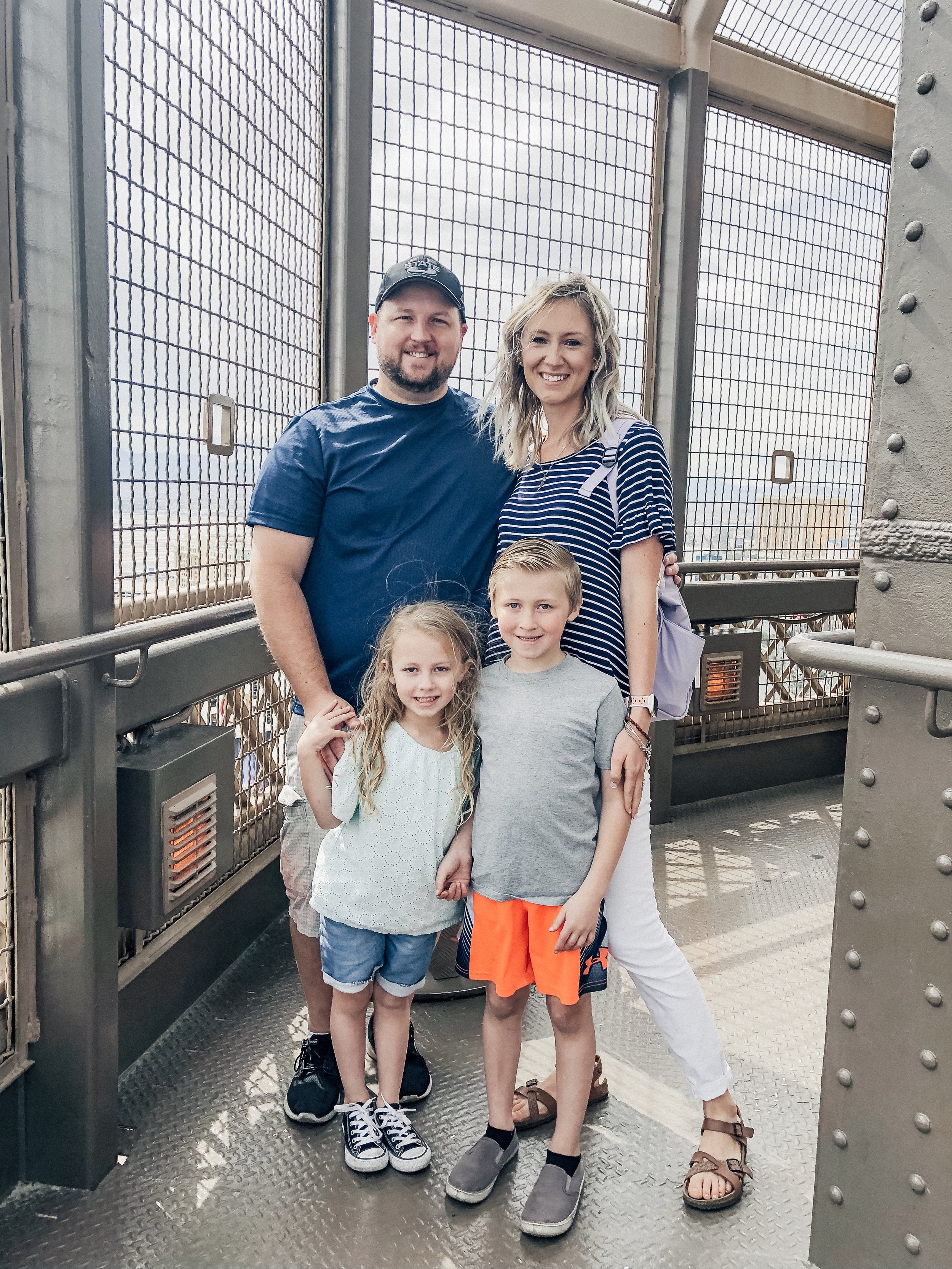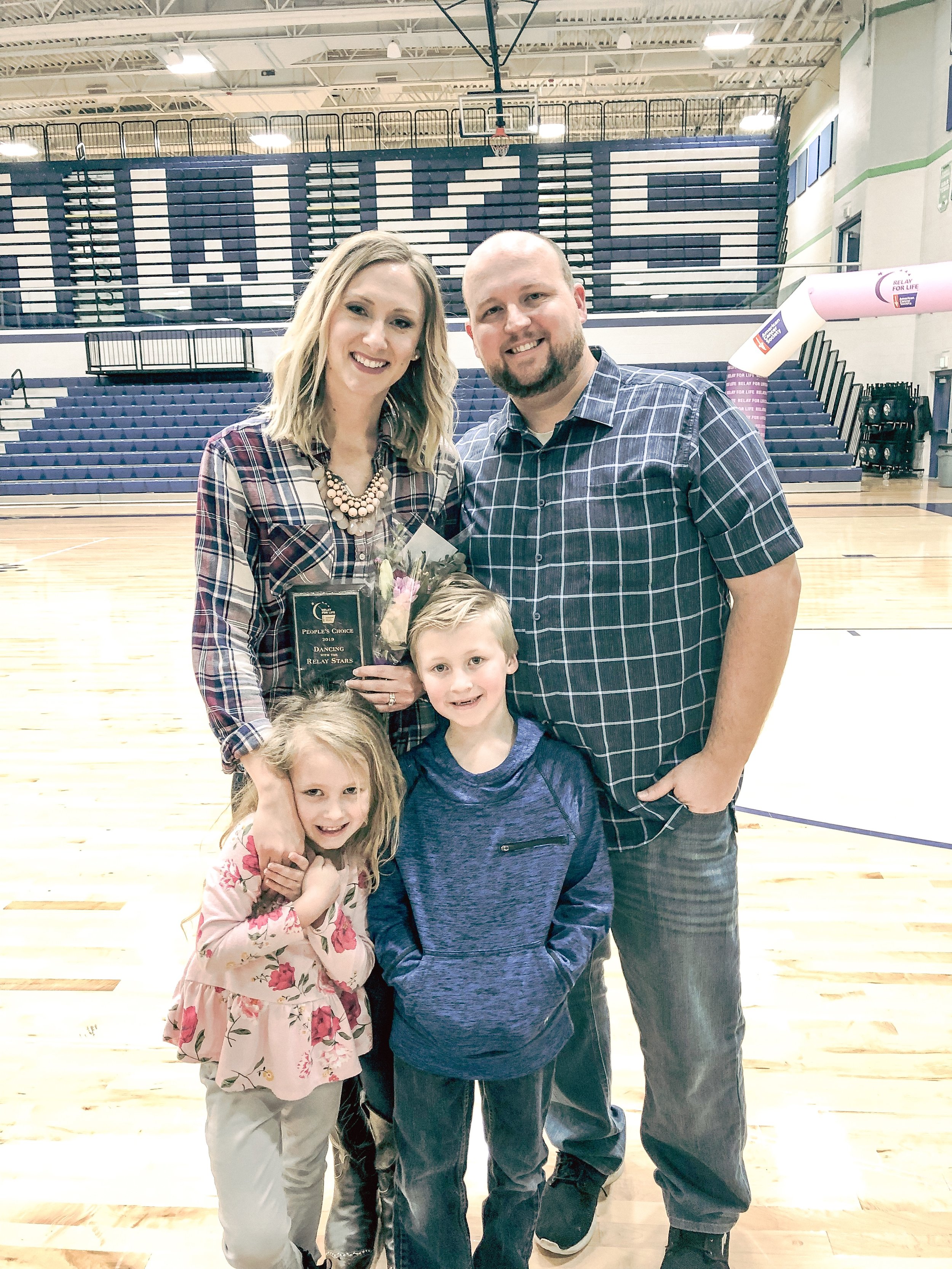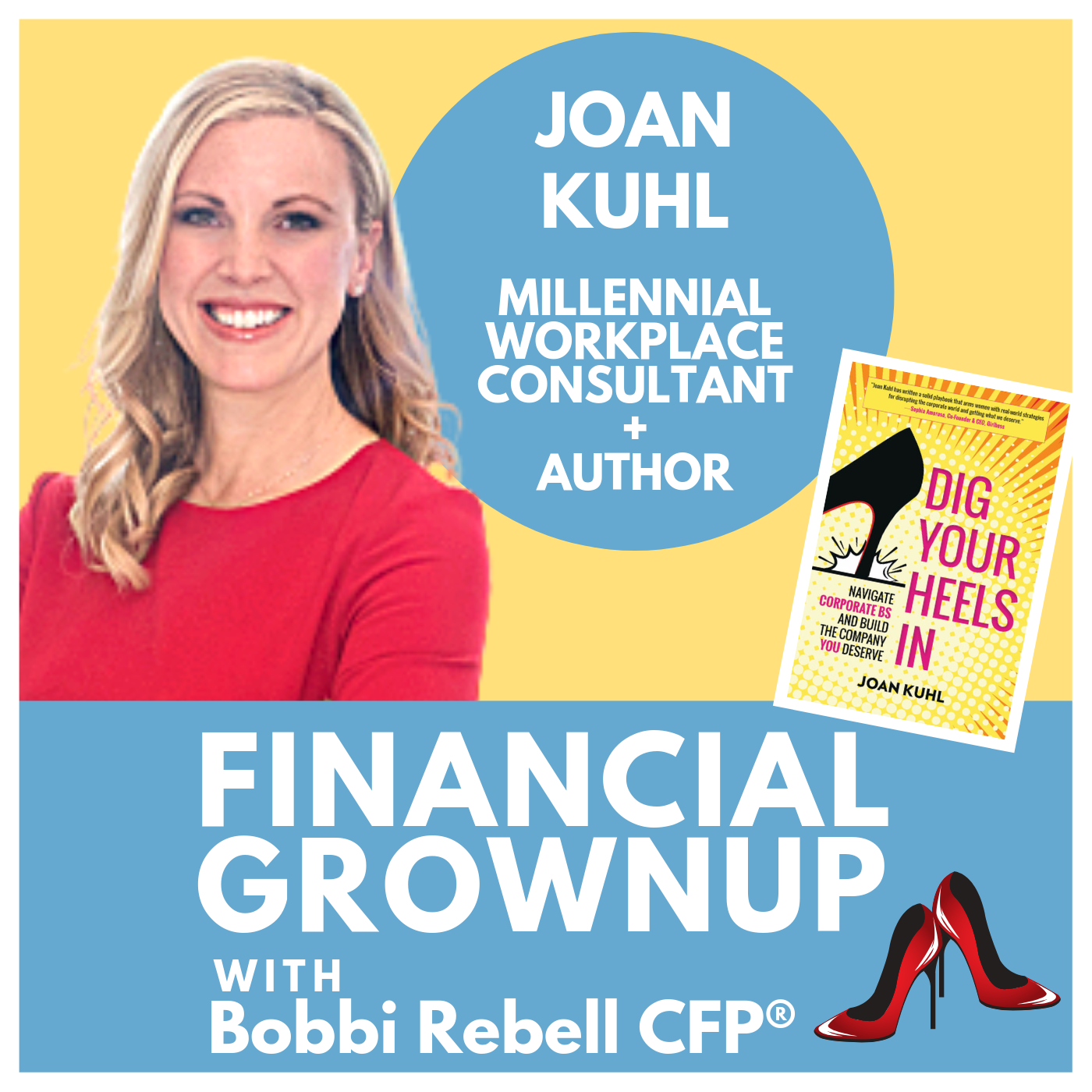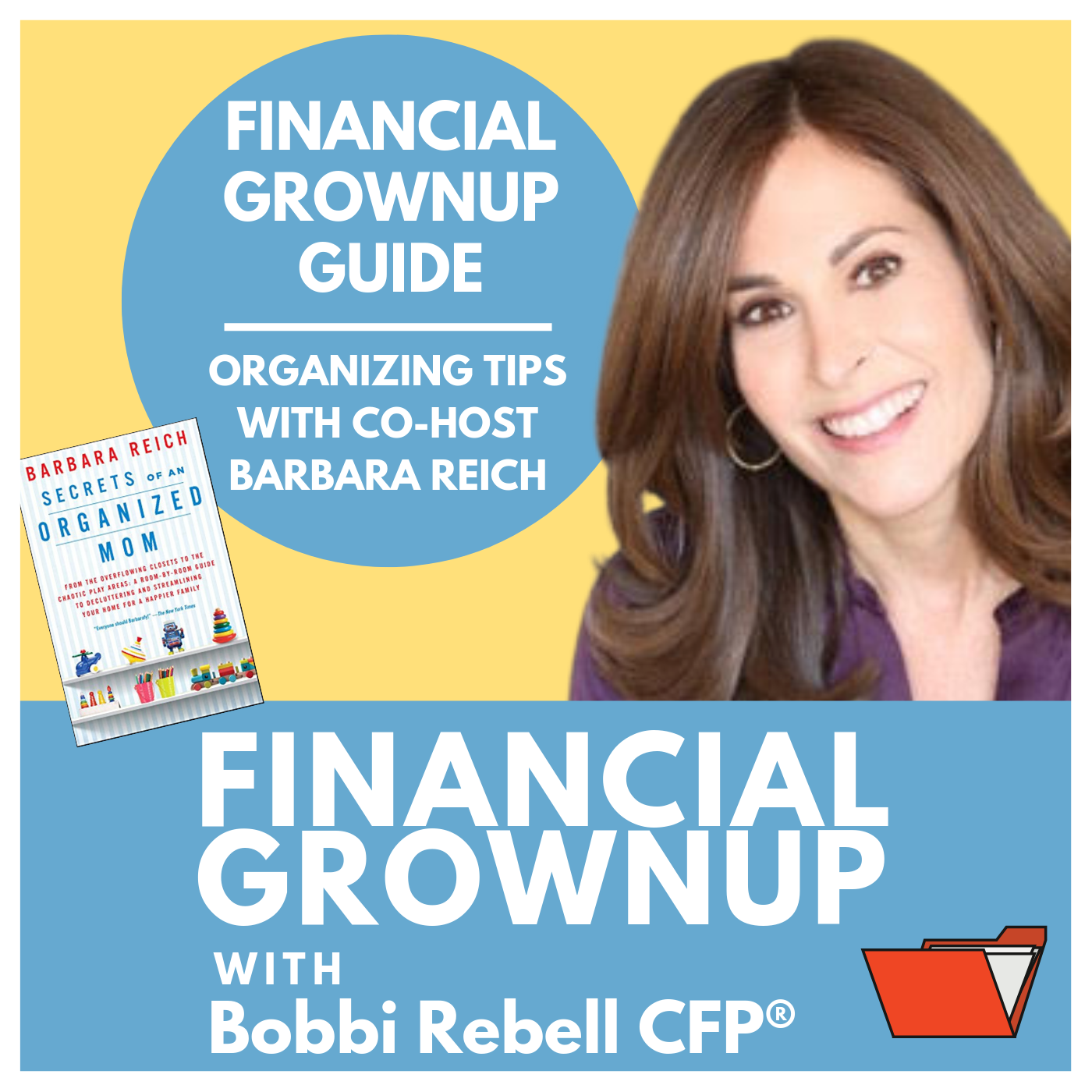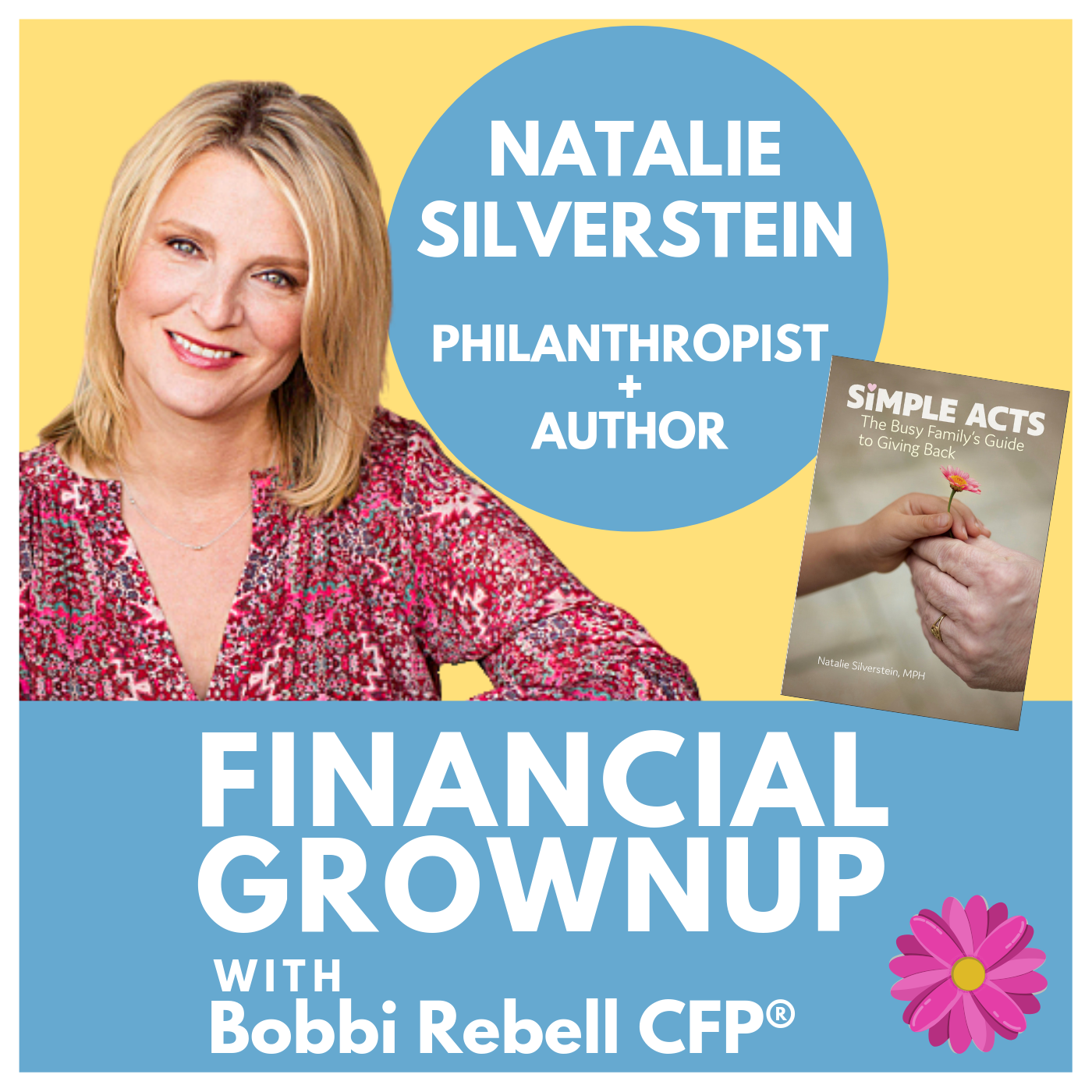Transcription
Nat Silverstein:
Very quietly, he didn't even look up while he was doing it, he unzipped the little side pocket and he pulled out a nickel, and when the man came by, he kind of quietly put it in his cup, didn't look up at him. He obviously understood that he had something that he didn't need, and that he could give it to this man.
Bobbi Rebell:
You're listening to Financial Grownup, with me, Certified Financial Planner, Bobbi Rebell, author of How to Be a Financial Grownup. And you know what? Being a grownup is really hard, especially when it comes to money. But it's okay. We're going to get there together. I'm going to bring you one money story from a financial grownup, one lesson, and then my take on how you can make it your own. We got this!
Bobbi Rebell:
Hey everyone. This story you just heard a preview of at the top of the show literally gave me chills when my friend Natalie shared it with me, and there's more where that came from. I'm really excited to share this interview. I also want to thank everyone, truly, for joining us. The show is really picking up steam and that's because of you. The support that you've been giving to the show is priceless, especially when you not only subscribe but also tell friends about the show. I just wanted to say an official thank you again. It's really appreciated. We grow one listener at a time.
Bobbi Rebell:
Let's talk about Natalie Silverstein. She is a really big deal. Natalie is a frequent writer, speaker, and consultant on the topic of family service, presenting to parents, educators, and children, and I got to know her, actually, when our children went to school together. As you will hear, she was the go-to mom if you wanted to do something good with your kids, a service project, volunteering, and so on. I remember taking my son to different activities suggested by Natalie when he was younger. Very hands-on, getting it done. Natalie runs the New York chapter of Doing Good Together and has just come out with her first book, Simple Acts: The Busy Family's Guide to Giving Back. When I was reading this book, I could literally hear the voice of Natalie behind the writing, that's how intensely personal this book was for Natalie.
Bobbi Rebell:
With that, let's just get to the interview. Here is Natalie Silverstein.
Bobbi Rebell:
Hey, Natalie Silverstein, you're a financial grownup, welcome to the podcast!
Nat Silverstein:
Thank you so much, Bobbi! Thank you for having me.
Bobbi Rebell:
This is such a treat because we are friends beyond the podcast. Our children actually went to school together.
Nat Silverstein:
Yes.
Bobbi Rebell:
It's so appropriate that you finally, finally wrote a book. You run the New York chapter of Doing Good Together, and now you've written the book Simple Acts: The Busy Family's Guide to Giving Back, so congratulations.
Nat Silverstein:
Thank you, thank you so much. A few years back, my kids were little, I have an 18-year-old, an almost-16-year-old, and an 11-year-old, same as you, and I really was just searching around New York City, trying to find volunteer opportunities, organizations, nonprofits, that would take us as volunteers. I just was sort of astonished at the number of people in need in this city, in this community, and the lack of opportunities for me to volunteer and to do good with my kids. I always joke around, you can get Chinese food at four in the morning, you can get anything you want any time in New York City, but I could not, for the life of me, find a place that would welcome my young children to volunteer, so I thought I would create something on my own.
Nat Silverstein:
Instead of creating a website, or a listing, or a subscriber list, I sort of noodled around on the internet and I found Doing Good Together, which is based in Minneapolis. It's been around for about 15 years, and they had a fantastic family-friendly listing of volunteer opportunities that they sent out to subscribers every month. I reached out to the founder and I said, "I'd like to do this, I'd like to franchise your idea and be your person on the ground in New York City." She flipped out and said, "This is exactly what I've always wanted, I've wanted to go national and spread the message of what we're doing here." I was the first other location, and now we're in several other cities, and so I curate this listing, and they push it out for me to all of my subscribers, and that's been really gratifying work. Through all of that, I did, as you mentioned, become sort of this defacto community service lady.
Bobbi Rebell:
As parents, and even if you're not a parent, you have people in your life, and you look at them, and you don't know if they really are understanding what they have and what other people don't have, and the importance of acts of kindness and simple things that you can give back. You're very candid in the book that you've had your own struggles with your own family about teaching them the values that you have and getting them to basically get on board.
Nat Silverstein:
Right.
Bobbi Rebell:
So tell us your money story.
Nat Silverstein:
I have three really wonderful kids. My son is in the middle, and while the two girls are very sort of emotionally connected, have very high EQ, super sensitive to other people's feelings, my boy is kind of a typical boy. When he was younger, he was a little bit head in the clouds, a little spacey. You'd be talking to him, and I joke around and say you could be crying hysterically in front of him and he'd be like, "Oh, gee, do you have a cookie?" He's a wonderful, affectionate, warm person, but when he was younger it really felt like it didn't quite connect, he didn't connect all the dots. I joked around that I sort of worried that he lacked this empathy chip, this piece of your soul that kind of connects to other people and understands what people are going through.
Nat Silverstein:
One day, we're on the subway, he and I, and he was young, maybe like seven or eight. There was a gentleman panhandling on the subway, as happens very frequently here in New York City. The gentleman was telling his story very passionately, and asking for help genuinely and articulately, and everyone on the subway is doing what people mostly do here in New York. They look down, looking at their phones, sort of ignoring him, not really making eye contact with him. It is very difficult to deal with homelessness in the street when you are dealing with it, because it would be very hard to help every single person.
Nat Silverstein:
But I'm sitting there and I'm looking at my son, I'm seeing him process all of this, and very quietly, and he didn't even look up while he was doing it, he unzipped the little side pocket, you know there's little pockets on the jacket, and he put his hand in, and he pulled out a nickel. Honestly, I don't know where he got this nickel. He probably found it on the street or found it on the playground, stuck it in his little zipper pocket, this little hidden pocket. He just pulled it out, and when the man came by, he kind of quietly put it in his cup, didn't look up at him. I was so moved in that moment, I just was like, first of all, where did this come from? He obviously understood that he had something that he didn't need and that he could give it to this man. Again, very quietly, without any fanfare.
Nat Silverstein:
I will fast-forward and tell you that we were just on the subway again together the other day, and the same thing happened. He's a big boy now, he's almost 16, and he pulled out his wallet, and he took out a dollar, and he put it in the man's cup before we got off the train. So I worried about him, and I didn't know if he was getting it all along, and he really kind of got it. It was gratifying to me, but every kid has to come at this and to this at their own speed. All kids are different, we know that, and again, it has to be all of this, doing service, acts of kindness, philanthropy, these have to be conversations and things that happen in your family on an ongoing everyday routine basis, because those are the drops in the bucket, those are the things that really fill out a kid's character, for sure.
Bobbi Rebell:
What kind of conversation did you have with him after this happened when he was younger? How old was he?
Nat Silverstein:
He was seven or eight. He was really little.
Bobbi Rebell:
Did you have a conversation? What was it like?
Nat Silverstein:
I did. We were holding hands, walking out of the subway, and I was like, "Oh, I'm really proud of you for doing that. I didn't know that you had that in your pocket, and I was kind of surprised." He didn't want to talk about it so much. I think that's the other thing, there's a lot of, my book talks about, reflection and really giving kids space to ask questions and to talk about what they'd like to do in terms of moving forward. Would they like to continue to do service in this way, and how did they feel about what they saw and what they heard? But there's also a little bit of, you don't want to over-talk it, and you want to just let it kind of be a part of the way that you move through the world. I just told him I was really proud of him and I thought that that was a really nice, kind thing to do, and that hopefully this man would be able to get some food with that money.
Bobbi Rebell:
What is the lesson for our listeners from that story?
Nat Silverstein:
I think it's watching and listening to your own kids, teaching about money, learning about money, and particularly learning about philanthropy and sharing of your resources is very personal to a family. These concepts of generosity, and service, and empathy, all of that goes along with a conversation about money and gratitude for what we have, and understanding and acknowledging that not everyone in the world has as much as we do, so how lucky we are. Also, what are the ways in which we can help other people who maybe don't have as much?
Nat Silverstein:
There's a lot of language around this social justice stuff. We talk about not calling someone a homeless person, but a person who is experiencing homelessness, because the notion is, "There but for the grace of God go I." homeless people generally are people who had a home, had a job, had a family. Something has happened, right now they're experiencing this, hopefully they can get help and they can find a home, find a job, go back to school. So much of the language around philanthropy and service has sort of judgment around financial and socioeconomic status, and so I just think these are important conversations to have with kids, and to always talk about how grateful we are for what we have. To be honest, it's not always going to be perfect, and sometimes things aren't going to go perfectly when you're doing volunteer work and that sort of thing, but just kind of always keeping the lines of communication open with kids on this.
Bobbi Rebell:
I like what you said about learning not to judge, because that's something even just among adults, we should not judge people that are going through tough times.
Nat Silverstein:
Sure. Words like impoverished, and needy, and hungry, yes, food insecurity is a real thing, and I think that phrase has really come up lately. The notion that kids go to school hungry every day and it's not because they don't have homes, or families that love them, or their parents don't have jobs, it's because at the end of the month, money starts to run tight, and there's not as much food. We know that a lot of kids get their meals at school, and so kids need to understand that this is a real thing that happens to a lot of children in their own communities, and that there are simple things that they can be doing, that your family can be doing, to help others who are in that position, and hopefully help them to get out of that position. It's not always a handout, it's a hand-up.
Bobbi Rebell:
Let's move onto your money tip, because this basically will tell us all how we can execute these ideas, specific apps that will make it easier to have your children get involved and give back.
Nat Silverstein:
One idea in particular that I wanted to share is if you have a child who's celebrating a birthday, or a bar mitzvah, or a sweet 16, or a confirmation, or anything, any wonderful milestone, and they would like to make some sort of charitable donation as part of that celebration, which I think is so critically important, and shows that in our joy, we are able to share that joy with others who perhaps are in need, there are a couple of websites, one's called ECHOage, one's called Kids Can Give Too, and these are gift sharing websites. The birthday child, or the special event child, registers with their website, selects a charity to support, there are literally hundreds to choose from, and then asks guests, in lieu of getting gifts, to make a monetary donation on the website.
Nat Silverstein:
The website collects all the funds and splits it, and I think in some cases the kids can even say how much of a split they want. Do they want 50/50? Do they want 60/40? Do they want 70/30? So that's sort of an interesting conversation, too. The child can say, "I want to do 50/50." Half of the money they collect through this website from their guests, and their friends, and their family, will go to the charity of their choosing, and half will come back to them so they can select one special, important gift for them. It's kind of a win/win, everybody feels like they've given something to the child, and the child feels like they've given back something to a charity that they care about. I do find sometimes when you ask for in lieu of gifts, people don't like doing that because they want so much to give a gift, and I totally get it, so this is sort of the best of both worlds.
Bobbi Rebell:
Because the kid is still getting a gift, so they're more likely to do it, because sometimes people, as you said, they just end up not doing anything rather than go to the toy store. That's a great solution.
Bobbi Rebell:
Where can people learn more about you and about your book, Simple Acts: A Busy Family's Guide to Giving Back, and all the other ventures that you're involved with?
Nat Silverstein:
Well, I am on Instagram, simpleacts_guide, so if you look at simpleacts_guide, you'll find me. Facebook, Twitter, also simpleacts_guide. I have a website, simpleactsguide.com, and of course the Gryphon House website. Gryphon House is my publisher, and they have lots of pages of my background, and a little more information about the book, and ways that you can order the book.
Bobbi Rebell:
Awesome. Thank you so much, Natalie, this was amazing.
Nat Silverstein:
Thank you, Bobbi, I really appreciate it.
Bobbi Rebell:
Hey, friends. When it comes to role models, Natalie is the total package. Here's my take on what she had to say.
Bobbi Rebell:
Financial grownup tip number one: family is how you define it. The subtitle of this book is The Busy Family's Guide to Giving Back. Just because you don't have young kids, don't let that stop you. Pick up Natalie's book and get going with your family, again, however you define family.
Bobbi Rebell:
Financial grownup tip number two: plan ahead for how you are going to interact with people that may be less fortunate than you, and decide in advance, for example, if you are out with a child, maybe your own child, maybe a niece, a nephew, a friend's child, what have you, if you see a homeless person, for example, how are you going to handle it? As Natalie said, that is a personal choice, but in the moment, you might panic and not have the right language, and so if this child asks you about it, it's important that you approach it using the right words. As Natalie pointed out, those words that we use, for example, saying food insecure, or experiencing homelessness, using those kinds of choices, they can really shape the perception of a child when they encounter these very precarious and difficult situations.
Bobbi Rebell:
By the way, for more specific tips, Natalie did stick around and taped a Financial Grownup Guide episode about ways to be a kinder financial grownup, so make sure that you are subscribed, because it's a really special episode, and we will be rolling it out in just a couple of weeks.
Bobbi Rebell:
Big thanks to Natalie Silverstein for really being the ultimate role model and helping us all get one step closer to being financial grownups.
Bobbi Rebell:
Financial Grownup with Bobbie Rebell is edited and produced by Steve Stewart, and is a BRK Media production.









